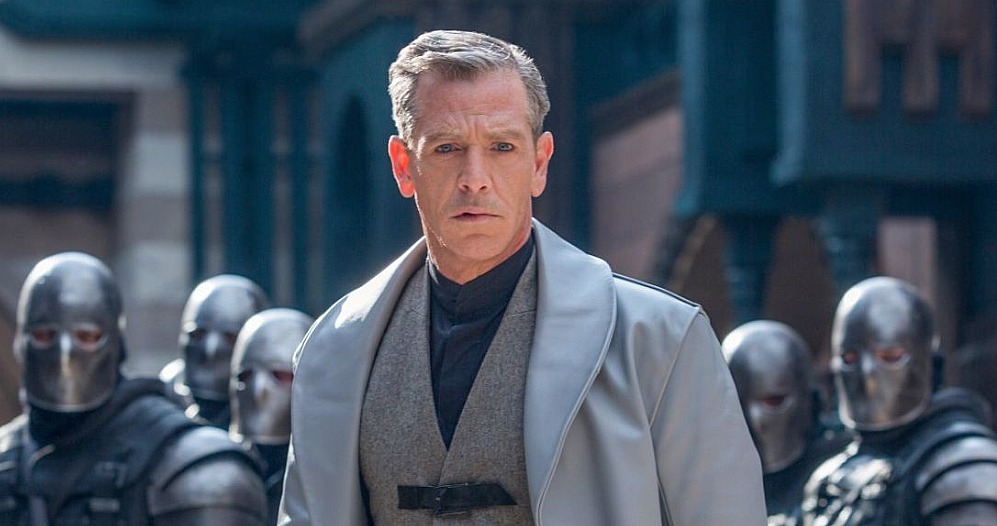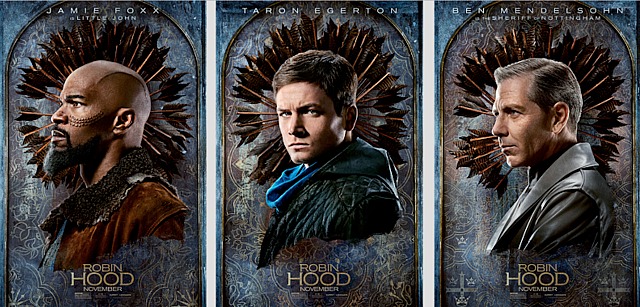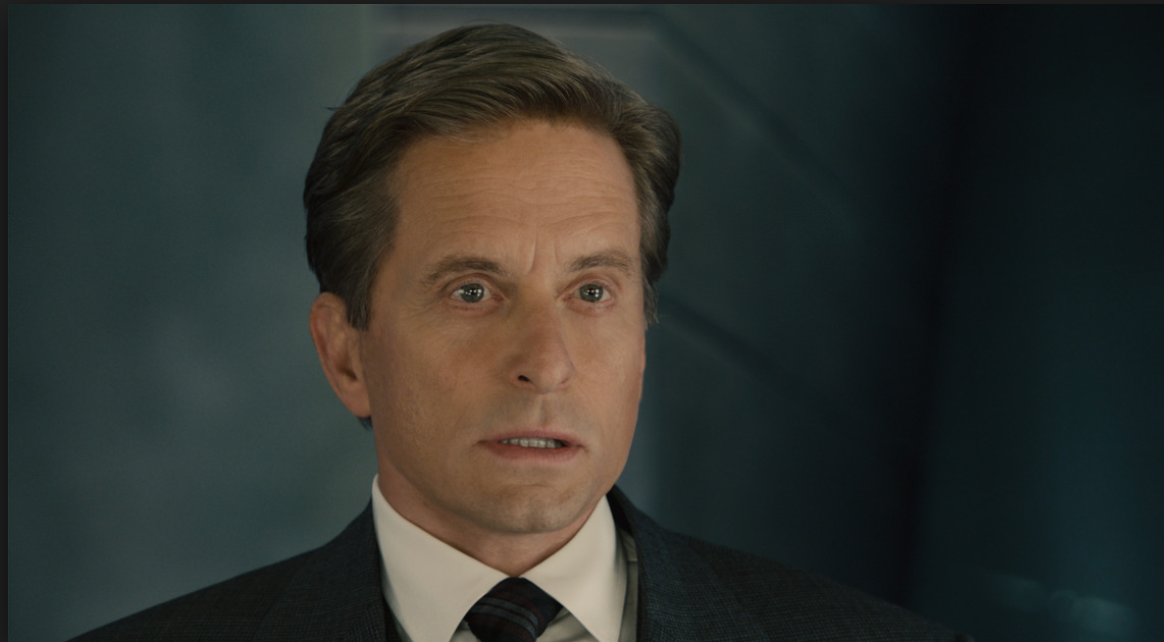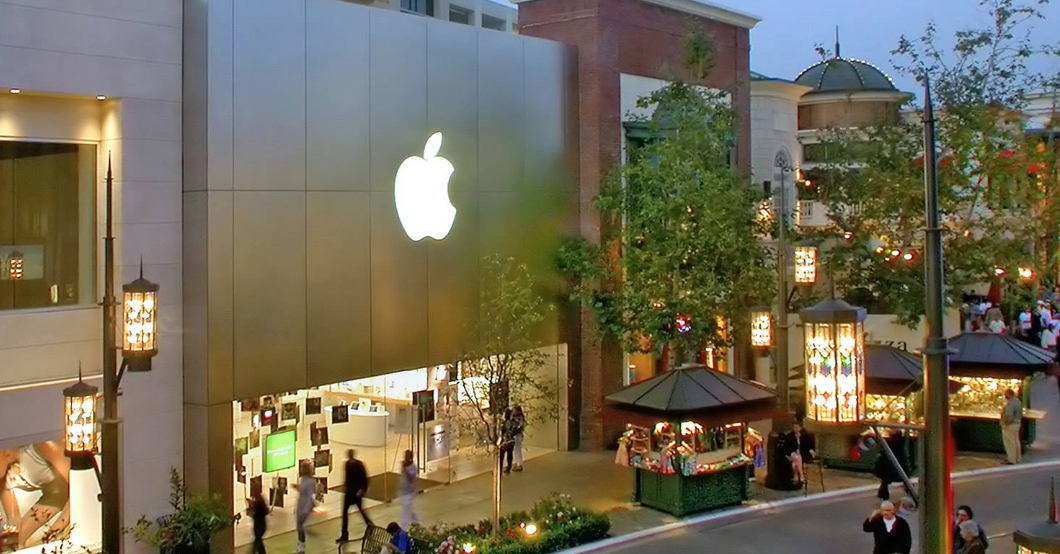On the heels of last week’s Helsinki embarassment or catastrophe or what-have-you, President Trump plans to invite Russian President Vladimir V. Putin to Washington for another meeting in the fall. There is cluelessness and there is staggering, thumb-in-mouth cluelessness that stuns and mouth-drools.
Daily
Netflix, Taback Join Forces
HE’s own Lisa Taback, generally regarded as one of the sharpest, shrewdest and best-connected award-season publicists and campaign strategists around, will become Netflix’s in-house campaigner as of 8.1. In other words she’s going to more or less orchestrate the awards-campaign for Netflix and Alfonso Cuaron‘s Roma, which will almost certainly be Best Picture-nominated. The following year Taback will presumably do the same for Martin Scorsese‘s The Irishman.
Netflix is obviously proud and cranked about Roma and The Irishman. The Taback deal means they’ll be going great guns on both in terms of award-season campaigning. A Best Picture Oscar will bestow an aura of class — an image upgrade like nothing else. Netlix is all in, money on the table, this is it.

The Hollywood Reporter‘s Scott Feinberg reported the Taback news earlier today.
Does this mean that Taback and her staff will be 100% exclusive to Netflix, or is there a little wiggle room? Taback has been working for First Man director-writer Damien Chazelle, for instance. The last paragraph in Feinberg’s story addresses this angle: “Under the terms of her Netflix deal, Taback, who declined to comment, will continue to consult with a limited number of her existing clients through the end of the current Emmy season and possibly through the end of the coming Oscar season, as well.”
I Don’t Believe It
While sitting for an interview with The Independent‘s James Mottram, Belgian actor Matthias Schoenaerts apparently said that Terrence Malick‘s Radegund, a German-language antiwar drama in which he costars, “is likely to premiere at Venice and/or Toronto during the autumn.” Or so Mottram has written.
I’ve heard differently. I was told a few weeks ago that Radegund probably won’t pop at the early fall festivals and will continue to hide out until the February 2019 Berlinale, if that. Malick has always taken his sweet-ass time in post. Roughly two years per film and sometimes longer — Tree of Life, To The Wonder, Knight of Cups, Song to Song. I actually wouldn’t be surprised if Radegund turns up closer to next year’s Cannes Film Festival or even, don’t laugh, during Venice/Telluride/Toronto of ’19.
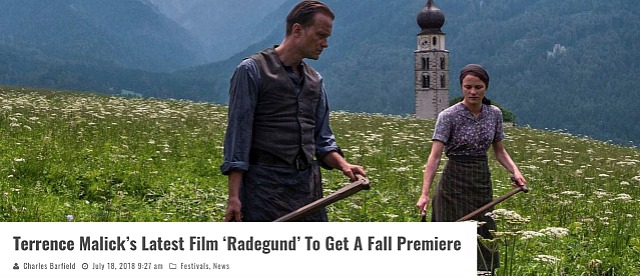
But if Schoenaerts is correct and Radegund winds up playing Venice, Telluride or Toronto this year (i.e., eight to ten weeks hence), terrific. Having a film ready to show less than two years after finishing principal photography is a very un-Malick-like thing, but who knows?
There’s no reliable timetable when it comes to Mr. Wackadoodle. He likes to shuffle and re-shuffle and think things through, and then re-shuffle and re-shuffle and then toss the lettuce leaves into the air as he twirls three times while chanting, adding lemon and olive oil and re-shuffling all over again, and then going outside and re-thinking it all during long walks around dusk.
Besides Schoenaerts Radegund costars August Diehl in the lead role as an Austrian who ran afoul of German authorities during WWII when he refused military service over ethical/religious beliefs. Costars include Valerie Pachner, Michael Nyqvist (who died in June ’17, roughly ten months after giving his performance), Jurgen Prochnow and Bruno Ganz.
As I Understand It…
Alfonso Cuaron‘s Roma, a likely Best Picture contender despite Spanish-language dialogue, has been announced as a centerpiece showing (10.5) at the forthcoming New York Film Festival. But it’s not a world premiere nor an exclusive North American booking. The NYFF release says it’s just a “New York” premiere, so Roma will most likely be seen first at the Venice Film Festival. Then it could (probably will) play Telluride and Toronto before hitting Kent Jones‘ Upper West Side of Manhattan festival. All is good and tingly.
“I was absolutely stunned by Roma from beginning to end,” Jones said in a statement. “By the craftsmanship and the artistry of everyone involved, by the physical power and gravitational force of the images, by the realization that I was seeing something magical: a story of ongoing life grounded within the immensity and mystery of just being here on this planet. Alfonso Cuarón’s film is a wonder.”
“Equalizer 2” Is Surprisingly Decent
I slumbered into a press screening of Antoine Fuqua and Denzel Washington‘s The Equalizer 2, ready to sulk and fearing the worst. I had found the original Equalizer a rotely bludgeoning, less-than-plausible thing that was below the level of Tony Scott‘s Man on Fire, the greatest Denzel-kills-bad-guys flick of all time. With the same screenwriter (i.e., Richard Wenk) on board for EQ2, I figured, what hope could there be of any improvement?
Well, guess what? The Equalizer 2 isn’t Man on Fire-level either, but it’s much, much better than Fuqua’s 2014 original. Yes, it’s a formulaic whoop-ass fantasy and, yes, with a few plot holes and plausibility issues, but this time I went with it. I actually felt satisfied and marginally impressed. Because EQ2 takes its time and focuses on character, basic values and careful step-by-step plotting before delivering the climactic violent payback stuff. As a result I felt more invested in Denzel’s Robert McCall, a former CIA black-ops assassin who’s now living in Boston and working as a Lyft driver. This time I said to myself, “I like this guy a little more, and I like that Fuqua has actually made a better-than-half-decent programmer for a change.”
As I walked out I was telling myself that The Equalizer 2 might be Fuqua’s best movie since Training Day (’01), but then I thought of Brooklyn’s Finest (’09), a dirty-cop drama that was relatively satisfying. There’s no question that EQ2 is heads and shoulders above Fuqua’s last four films — The Magnificent Seven (undisciplined western shoot-em-up), Southpaw (ham-fisted), the first Equalizer and Olympus Has Fallen (terrorist-attack garbage).
Pay no attention to those crappy Rotten Tomatoes and Metacritic scores. The critics who are dismissing EQ2 are being way too harsh and fickle. If you’re at peace with the premise (i.e., Denzel bringing pain to bad guys) you won’t feel burned. This is a mostly satisfying actioner that actually cares about the quiet spaces between the shoot-outs and beat-downs, and it has a world-class finale — a stalking and ducking face-off between Denzel and four bad guys in the midst of a torrential hurricane.
I loved the fact that except for the opening action sequence (a de riguer thing these days), the first 20 or 25 minutes of EQ2 are about Denzel Lyft-ing people around Boston and getting to know or assist them in quiet little offbeat ways. I admired the fact that Fuqua invests in a subplot dynamic between Denzel and 22 year-old Ashton Sanders (Moonlight), one that involves values, personal integrity and good parenting.
Nobody Notices Aspect Ratios
Mission: Impossible — Fallout director Chris McQuarrie tweeted yesterday that during the big IMAX sequences (“the HALO and the heli”) the film’s aspect ratio changes from 2.39 (standard widescreen) to 1.90 (nearly standard Academy ratio of 1.85). That’s not what we like to see when a film shifts into IMAX mode. For that we require super-tall boxy aspect ratios, or at the very least a 1.43 a.r., which is what Chris Nolan‘s Dunkirk shifted into from time to time. The IMAX “wow” factor needs that.
Most viewers (critics included) don’t even notice aspect ratios. Me to critic friend : “Is the film you saw in 1.85 or widescreen scope?” Critic friend: “Uhm, I’m not sure.”


Sane, Sensible President
Former Pres. Obama: "Democracy depends on strong institutions. It's about minority rights and checks and balances and freedom of speech…and a free press, and the right to protest and petition the government, and an independent judiciary, and everybody having to follow the law" pic.twitter.com/21u4yCdlqq
— ABC News Politics (@ABCPolitics) July 18, 2018
Dorian Gray Dreams
I have a quote in Tim Appelo’s 7.16 AARP magazine piece about digital de-aging of older movie stars. The de-aged actors are Michelle Pfeiffer in Ant-Man and the Wasp, Samuel L. Jackson in next year’s Captain Marvel, Will Smith in Gemini Man, and Robert De Niro in Martin Scorsese’s The Irishman.
Appelo mentions a 3.13.18 HE report that “de-aging tech will help push The Irishman’s budget to $250 million. He has me saying that’s quite a tab “for a straight-goombah period crime drama that will most likely appeal to 35-and-overs.”
Here’s what I sent to Appelo when he asked me for some thoughts a week ago:
“26 years ago I exhaustively researched and wrote an Empire article called ‘Reanimator,’ about how emerging digital technologies will one day be able to bring back actors from the grave and put them in new movies in a highly believable fashion. That’s a far more interesting angle, I feel, than merely de-aging actors. I would love, love, love to watch a new film costarring Cary Grant and Jennifer Lawrence. Okay, maybe that would be too costly, but at least one in which Grant plays a significant supporting role.
“De-aging? Meh, fine, whatever.
“I was genuinely impressed by the de-aging of Michael Douglas in a single scene from 2015’s Ant-Man. But at the same time I’m rather pessimistic about this technology given the enormous cost and the many, many months of work that are being devoted to the de-aging of Robert De Niro, Al Pacino and (presumably) Joe Pesci in Martin Scorsese‘s The Irishman. (The film is apparently loaded with glow-of-youth flashbacks.)
“The de-aging process is the reason The Irishman, which finished shooting last March, won’t be released until the fall of 2019, and the reason it’s costing Netflix an arm and a leg. Any technology this expensive and this cumbersome isn’t worth getting wound up about.
“Last February it was reported that the Irishman budget was at ‘$140 million and climbing.’ Last March Page Six‘s Richard Johnson reported that the cost had ballooned to $175 million. Add standard marketing costs (usually $85 to $100 million for a major feature) and you’re looking at a conservative tab of $250 million. All this for a non-fantasy, straight-goombah period crime drama that will most likely appeal to 35-and-overs.
Pathetic Liar
If anyone believes Donald Trump‘s explanation about abruptly reversing his beliefs about Russian complicity in 2016 election meddling (“I misspoke”), please explain why in rational, sensible terms. In Helsinki he said “I don’t see any reason why it would be” Russia; today he said he meant to say “I don’t see any reason why it wouldn’t be” Russia. I used to lie like this to my parents when I was eight.
Spoke Too Soon
Six days ago (7.11) I reported that my horrific iPhone 8Plus sign-in passcode problem was about to be solved. That morning a senior Apple tech person had written the following to Hollywood Elsewhere: “Thank you for your patience. We reviewed the documents you provided and [have] turned off the Activation Lock on your device.” I took that to mean that the six-digit, two-step security code that had been making my life hell since my iPhone 6s Plus was stolen would be sidestepped or neutered.
False alarm! The “activation lock turn-off” was some kind of red-herring or misunderstanding. Worse, all my contact information is now gone from the new iPhone 8 Plus.
I bought the new iPhone 8 Plus three hours after the 7.5 theft of the iPhone 6s Plus. I tried to Cloud-synch it right away, and was partially successful due to the thief not having fully persuaded Apple that his/her phone (ending in 14) was a trusted second device. So at least I had my contacts and notes. But when I showed up for a Genius Bar appointment at the Grove Apple store on 7.12, a guy wiped my iPhone clean, taking it back to factory settings. And then the info download failed because the “activation lock turn-off” was a non-starter.
I’ve been in fresh hell ever since. I’m in a slightly better place now in terms of history and receipts, granted, but I’m still unable to find the right Apple techie who can not only shrewdly assess the particulars but stay with me until the problem has been put to bed.

That’s almost the most difficult part — finding a high-end Apple support professional who not only has the smarts to understand and diagnose the problem (I’ve so far spoken to three people who fit this description) but one who won’t abandon me after two or three exchanges of information. This is what Apple people have done so far — helpfully engage and then vaporize — and I don’t mind saying I’ve become very perturbed about this.
I’ve dealt with two Apple senior consumer-tech-support persons — Stephanie Owen, who told me that she’s based in Hamilton outside of Toronto, and Charnae Shorter, who told me she’s based in Virginia. They were both very focused, constructive, caring and helpful until they flaked. Since then I’ve written and called repeatedly, pleading for follow-up — silencio.
I also spoke to an Apple iCloud engineer named Arryon Maiden, a bright and friendly guy (only 23) who’s based in Austin. As of last Saturday I’d sent him all the pertinent information that I had at that time (including copies of five email messages between Apple and the thief who took my phone — a guy who persuaded Apple’s system that his phone number, ending in 14, is a trusted second number of mine). Arryon said in a breezy, light-hearted way that he was satisfied that the problem would soon be taken care of, and that he’d be speaking to senior staffers and would probably be back to me “within a couple of hours.”
That was the last I ever heard from Arryon Maiden. I’m written and left phone messages, asking again and again, down on my knees…nothing.
I’m now back to square one, trying to find a responsible iCloud whizkid who can step in and solve the problem, and who won’t abandon me to fate and happenstance after a couple of encounters.
I’m now thinking my only prayer is to persuade a big-time tech or consumer-support columnist to write about this. Maybe David Lazarus, the “Consumer Confidential” guy for the L.A. Times. Or Walter Mossberg, former tech columnist with The Wall Street Journal, currently with of The Verge and Recode. I don’t know this realm very well, but the right columnist would only have to double-check my facts and then rewrite what I’ve already posted about this nightmare — article #1, article #2, article #3 and article #4.
Brutish Christian Oppressors
You can tell right away that Joel Edgerton‘s Boy Erased (Focus Features, 11.2) is well acted, especially by Lucas Hedges (Manchester By The Sea, Lady Bird) as the real-life Garrard Conley, whose experience with Christian gay-conversion therapy was the subject of his 2016 novel, “Boy Erased: A Memoir of Identity, Faith, and Family.” Russell Crowe and Nicole Kidman also quote good, it appears, as Hedges’ hardcore Christian parents. It also seems as if Edgerton is suitably abrasive and obnoxious as Hedges’ conversion therapist. You sense strong emotional currents. Obviously an awards-bait film, but how will the New Academy Kidz respond?
Nottingham Coif
Remember the good old days (i.e., eight years ago) when directors of historical fables would deliver at least a semblance of historical realism? No one presumed that Ridley Scott‘s Robin Hood, Kevin Reynolds and Kevin Costner‘s Robin Hood: Prince of Thieves or Michael Curtiz‘s The Adventures of Robin Hood were scrupulous representations, but at least they gave it a shot — half historical, half Hollywood costume values of the moment.
Otto Bathurst‘s Robin Hood (Summit, 11.21) is a perverse renunciation of the Curtiz, Reynolds and Scott approach. The idea seems to be “let’s nominally indicate that our Robin Hood is set in the distant past, but otherwise let’s undercut any hint of historical realism and turn the whole enterprise into a preening video game.” I’m thinking in particular of Ben Mendelsohn wearing a 21st Century, corporate-friendly, side-parted $250 undercut as the Sheriff of Nottingham, not to mention his costume looking like something he bought at Rag & Bone.
